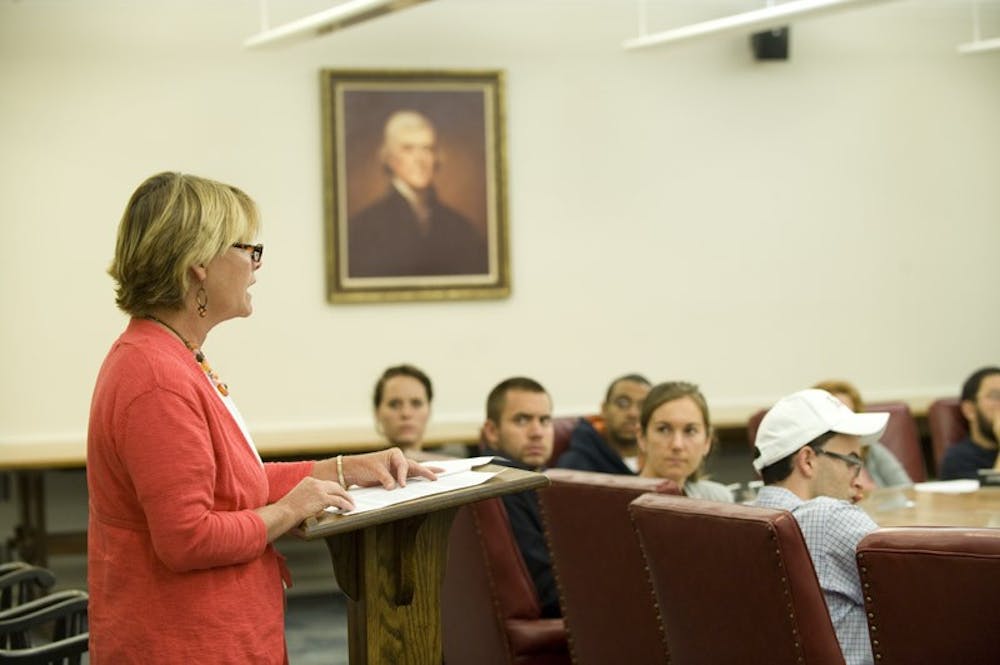The Honor Committee heard and addressed its first community concern of the semester last night. Barbara Pierson, the parent of a student expelled on honor charges last academic year, spoke before the Committee to address concerns about her daughter's honor trial, as well as make some possible suggestions for the Committee.
Pierson's daughter was first accused of an honor offense in April 2008 and then found guilty and subsequently expelled in October - a seven-month process during which Pierson's daughter became an "emotional wreck."
As a result, Pierson felt it was important to present "the ordeal that my child went through" and the issues that accompanied her case as it went before the Committee.\n"One of the things I wanted to bring up ... deals with the emotional aspect of a trial," Pierson said.
Currently, advisers are assigned to students accused of an honor offense. These advisers are supposed to guide the accused student and help them navigate the potentially complicated process. But according to Pierson, the adviser provided to her daughter could not have possibly performed his job in an adequate fashion.
"We were told that the advisers were rigorously trained," Pierson said. Because the advisers are not necessarily psychology majors nor associated with any psychological facility though, they "couldn't possibly understand" how a student going through the process feels, Pierson said.
Honor Chair David Truetzel responded to Pierson's concerns after last night's meeting, noting that students' health and well-being is the Committee's top priority. He added that the Committee constantly tries to make sure that the advisers are "trained to know when a situation has gotten out of their control" and when to refer students to Counseling and Psychological Services or other resources.
In addition to her complaint about advisers' perceived lack of training, Pierson also expressed concern about the proposal to alter the Committee's definition of plagiarism, brought up last week by J.J. Litchford, vice chair for community relations. In redefining what constitutes plagiarism - let alone any honor offense - the Committee should focus on the nature of intent, Pierson said, and whether the accused student was truly trying to use another's ideas as his own. In this regard, Pierson said she believes it is possible for a student to commit an act of "unconscious plagiarism," in which the act is unintentional and thus should not be punished.
Truetzel emphasized that as analyzing the definition of plagiarism currently is one of the Committee's most important priorities, it should be noted that, "Having a better definition goes hand in hand with intent."
Moreover, having a clear definition will help community members better understand what constitutes an intentional honor offense, he added.
For all of her criticisms, Pierson said she is not simply trying to point out the Committee's flaws. Instead, she said she hopes to "educate, and not eradicate" the Committee.
"I can't sit by and let this happen to another child," Pierson said.
After the meeting, Truetzel said he hopes people like Pierson will continue to come and speak before the Committee, as the feedback remains a helpful source of information.
"We would all love it if people came in for community concerns," he said, adding that a person who speaks before the Committee makes a "bigger impact" than anything else can.







